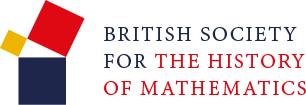Imagining AI
Imagining AI
Oxford Mathematical Institute presents Imagining AI, a workshop, demos and display in Oxford’s Bodleian Library on 9/10 September, based on items in Oxford’s collections.
Programme
Friday 9th September, 10.00 - 18.30, Workshop, panel and reception
Speakers include:
• Troy Astarte (Swansea) on Christoper Strachey's 1950s experiments with computer poetry and chess
• David Brock (Computer History Museum, Mountain View) on curating AI experiments
• Kanta Dihal (Cambridge) author of "AI Narratives" (OUP)
• David Dunning (Pennsylvania) on Jevons's 1850s "Reasoning Piano”
• Sharon Ruston (Lancaster) author of “The science of life and death in Frankenstein" (Bodleian)
• Máté Szabó (Oxford, Greenwich) on Max Newman's influence on Alan Turing
A panel discussion will explore how the history and philosophy of AI and computing can enrich contemporary conversations about the use of these transformative technologies, followed by a wine reception.
Saturday 10 September 10:30 – 15:30, demonstrations
Encounter a world of AI at the Weston Library. Meet Ai-Da, the world’s first ultra realistic robot artist, for a Q&A and live art session. Students from Cheney School will be exhibiting artwork responding to artificial intelligence in our lives today and in the future. Watch a model of Charles Babbage’s Difference Engine in action, and a cybernetic robot ladybug that follows light and sound.
Opens 9th September, 9am - 5pm, Display in Blackwell Hall, Weston Library Explore the ideas that led to contemporary AI with manuscripts of computer pioneer Ada Lovelace; pages from Mary Shelley's draft of "Frankenstein", and notes on computer poetry and draughts from Turing's collaborator Christopher Strachey. The History of Science Museum are lending Stanley Jevons's remarkable mechanical “reasoning piano” from the 1860's, and an even earlier pocket logic calculator.
Opens 9th September, noon - 5pm (not Mondays), Display in History of Science Museum, Oxford See the earliest plans and prototypes of Charles Babbage's computers, and Ada Lovelace's so-called "first programme".
